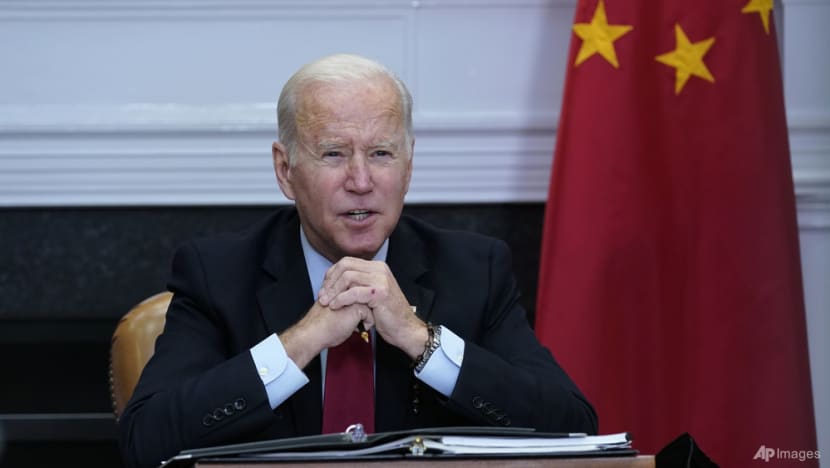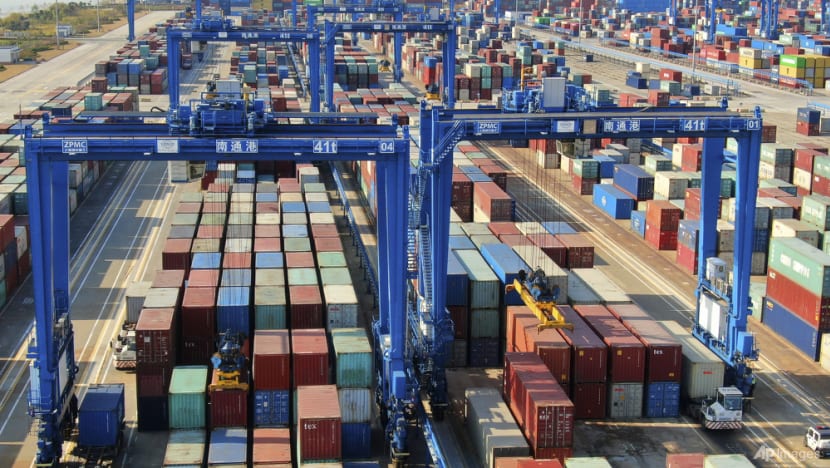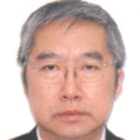Commentary: How US-China decoupling became a self-fulfilling prophecy
Ever since the words "decouple from China" were uttered, the US and China have been engaged in a tariff war, sanctions and even a diplomatic boycott now at the Winter Olympics - actions few desire, says Chinese economist Yu Yongding.

BEIJING: In 2018, Steve Bannon, then-US President Donald Trump's chief strategist, argued that the United States needed to "decouple" from China.
Since then, the term has become a fixture in discussions of Sino-American relations - to the point that some, such as former Australian Prime Minister Kevin Rudd, have warned that it could become a self-fulfilling prophecy. How salient is that risk today?
Some decoupling is undeniably underway. In recent years, the two countries have been locked in a tariff war.
Moreover, the US has implemented sanctions against the Chinese tech giants ZTE and Huawei, authorised the delisting of Chinese companies from US stock exchanges unless they meet US auditing standards, and added a number of Chinese companies to its "entity list," thereby subjecting them to additional trade restrictions.
This trend extends beyond trade and technology. For example, the number of Chinese students enrolled in American universities has plummeted.
And the US has announced plans for a diplomatic boycott of the 2022 Winter Olympics in Beijing, prompting condemnation from China.
Yet it is unlikely that either China or the US is as keen to decouple as these developments may suggest.
China has adopted a passive approach, reacting to US actions, while taking care not to initiate any fights. And while Americans broadly support a tough line on China, far fewer support cutting economic ties.
Decoupling is certainly not in the interest of the US business community. As the US Chamber of Commerce recently reported, "American companies would lose hundreds of billions of dollars if they slashed investment in China or the nations increased tariffs."
This may partly explain why even Trump's vice-president, Mike Pence, in 2019, answered with a "resounding no" when asked if the administration wanted to decouple from China.
More recently, US Trade Representative Katherine Tai argued that, far from decoupling - which "isn't a realistic outcome" - the US is pursuing "recoupling"; US officials are merely pinpointing their goals in this process.

DESPITE DECOUPLING, BUSINESS IS BOOMING
Whatever those goals turn out to be, some recoupling is already happening. As the US-China Business Council reports, after the two countries signed the Phase One trade agreement in 2020, both sides halted tariff escalations.
Furthermore, China instituted a "robust system of tariff exclusions," with the US also instituting some exclusions.
This has contributed to a rebound in bilateral trade. In 2020, US goods exports to China grew by roughly 18 per cent, more than making up for the tariff-driven drop of more than 11 per cent in 2019. With that, China has retained its position as the third-largest market for US goods exports.
China has also been maintaining - or even deepening - its ties with the rest of the global economy.
As Nicholas R Lardy of the Peterson Institute for International Economics observes, "despite economic and financial tensions and a plethora of foreign restrictions on the transfer of technology to China," the country continues to attract "record amounts" of foreign direct investment.
In fact, in 2020, China's inbound FDI grew by more than 10 per cent, to US$212 billion, putting its share of global FDI at an all-time high of one-quarter, almost twice its share in 2019.
China's leaders seem happy to continue on this path. In September, China's central bank and financial regulators pledged to optimise market-access requirements for foreign banks and insurance companies, improve rules on cross-border transactions between parent companies and subsidiaries, and expand channels for foreign capital to participate in the domestic financial market.
China is also pursuing complementary domestic reforms, aimed, for example, at achieving competitive neutrality. And it is using market mechanisms (such as exchange-rate flexibility) to balance its trade account.
Furthermore, China is working to strengthen its adherence to international rules and norms, such as intellectual-property protections - a key concern of foreign companies operating in China.
CHINA’S 'STEADY EFFORTS' TO PURSUE TRADE
As the US-China Business Council notes, China has made "steady efforts" to improve protection and enforcement of IP rights, and its IP laws and regulations "increasingly reflect international standards."
China's leaders are also working to strengthen regional and multilateral cooperation. The country's calls for revitalising the World Trade Organization, its participation in the Regional Comprehensive Economic Partnership, and its application to join the Comprehensive and Progressive Agreement for Trans-Pacific Partnership exemplify this effort.
Overall, it seems clear that China is committed to upholding global value chains. Yes, it is adjusting its economic structure in order to reduce reliance on foreign demand, and investing heavily in research and development, with the goal of improving its capacity for indigenous innovation.
But, contrary to what some Western observers believe, China has been pursuing its own form of decoupling for more than a decade, since it launched a campaign to develop more advanced technologies at home.
This is in response to Western efforts to deny Chinese firms access to advanced technologies - efforts that, in many cases, have caught the Chinese by surprise. If any steps China takes in this process turn out to be problematic, they can be negotiated within the WTO framework.
This might not be exactly what the US envisioned when it supported China's accession to the WTO 20 years ago. But, in its own way, China is fulfilling the promise of that step, and it will most likely continue to do so, as long as the US lets it.
Nonetheless, Rudd's warning should not be taken lightly. If we keep talking about decoupling, we may well get it. That is an outcome we would all live to regret.
Yu Yongding, a former president of the China Society of World Economics and director of the Institute of World Economics and Politics at the Chinese Academy of Social Sciences, served on the Monetary Policy Committee of the People's Bank of China from 2004 to 2006. PROJECT SYNDICATE.






















